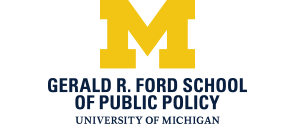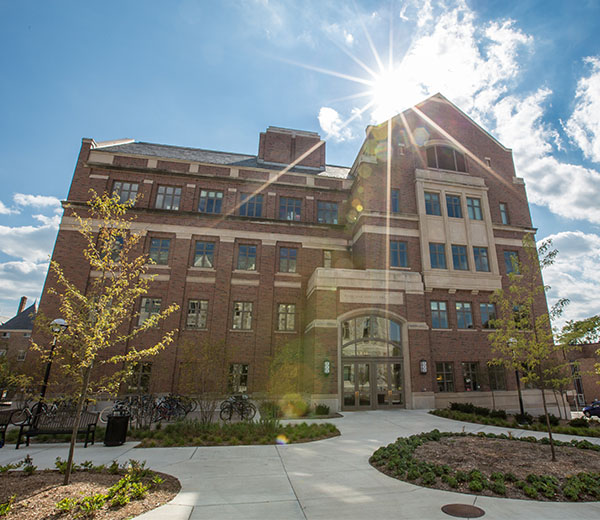The Ford School at the University of Michigan is a community dedicated to the public good. We inspire and prepare diverse leaders grounded in service, conduct transformational research, and collaborate on evidence-based policymaking to take on our communities’ and our world’s most pressing challenges.
Housed at a world-class university, the school excels in interdisciplinary research, teaching, and engagement in fields such as education policy, environmental and energy policy, public and nonprofit management, economics and finance, and politics among others, with Top 10 rankings by U.S. News & World Report in social policy, public policy analysis, urban policy, and health policy and management. These strengths complement and underlay the Ford School’s increasing emphasis in international affairs, human rights, security & diplomacy, and international development.
Our graduate core courses lay the analytical groundwork necessary to understand international affairs, institutions, economic systems, and politics. Advanced electives include classes on international trade, human rights, economic development, national security, and diplomacy. The Ford School offers two optional concentrations for students interested in declaring a focus area to position themselves for a career in international affairs: International Policy and International Economic Development.
Students have the opportunity to enroll in coursework that takes them beyond the classroom through international travel. One such class is led by students, who vote on which developing country to study in the classroom and throughout a weeklong trip. The curriculum of each class is constantly evolving to the issues most relevant to the day and drawing upon the expertise of the professor teaching the course.
With a requirement to intern between the first and second years of study, about 20 percent of students opt to intern abroad at organizations that include the World Trade Organization, the International Civil Aviation Organization, the World Bank, The Asia Foundation, and Innovations for Poverty Action. Another 20 percent intern with a U.S.-based organization that deals with international issues.
Our two internationally focused research centers provide opportunities for students to pursue coursework, learn from practitioners, and gain valuable skills through workshops and seminars.
- The International Policy Center, the hub for global engagement and education on pressing issues housed at the Ford School, hosts visitors and seminars and produces research on international finance, trade and development, international security, and human rights.
- The Weiser Diplomacy Center brings professors of practice in international diplomacy and hosts shorter-term opportunities for diplomats in residence from around the world. The center also offers workshops, simulations, conferences, and internship opportunities in the U.S. and abroad, making the Ford School an outstanding place for those aspiring to meaningful careers in international affairs.
Dedicated to global engagement, opportunities across the university allow students have exposure to international experiences. U-M houses 17 international centers and programs focused on world regions and global themes. Students have the opportunity to learn more than 40 languages.


